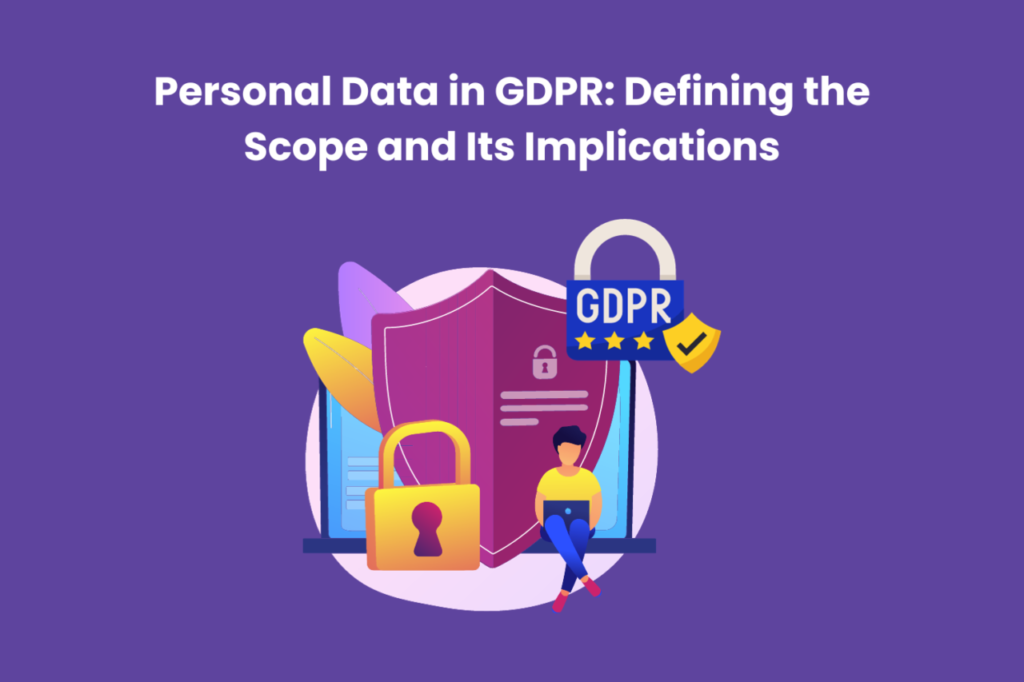Whether you’re shopping online, browsing social media, or even just using a smartphone, your data is being collected, processed, and shared in ways you might not even be aware of. The General Data Protection Regulation (GDPR) was introduced to address this issue and redefine how personal data is handled in the European Union (EU). In this blog post, we will explore the concept of personal data, GDPR Scope, and the profound implications it has on both individuals and organizations. If you’re looking to navigate the complex world of GDPR effectively, consider enrolling in an Online GDPR Course to gain a deeper understanding of the regulation and its scope.
Table of Contents
- Defining the Scope of Personal Data in GDPR
- Identifiable Information
- Sensitive Data
- Pseudonymous Data
- Implications of GDPR’s Scope on Individuals
- Implications of GDPR’s Scope on Organizations
- Conclusion
Defining the Scope of Personal Data in GDPR
The definition of “personal data” is expanded by the General Data Protection Regulation (GDPR) to include more than just names and addresses. To guarantee conformity, it is crucial to grasp the breadth of the material it encompasses.

Identifiable Information
At its foundation, GDPR defines personal data as any information that may directly or indirectly identify an individual. Names, addresses, and identification numbers are all part of this category, but it extends beyond that. Personal information includes contact details such as email and phone numbers, as well as digital identifiers like IP addresses and device IDs. Because of their importance in modern digital tracking and marketing, these identifiers fall squarely under the purview of the General Data Protection Regulation (GDPR).
Sensitive Data
The General Data Protection Regulation also defines “special categories of personal data.” Racial/ethnic background, political leanings, religious convictions, medical history, and sexual orientation are all examples. More stringent rules apply to processing this kind of data, and it must be done with a legitimate justification. Organisations dealing with sensitive data and people worried about the security of their most personal information would benefit greatly from a thorough understanding of what constitutes this category.
Pseudonymous Data
GDPR heavily emphasises the need for pseudonymous data. Data that has been modified to make it more difficult to identify specific persons. Data masking techniques such as encryption and tokenisation might be used. Pseudonymous information is nonetheless subject to GDPR, albeit with less stringent regulations. This differentiation acknowledges that pseudonymisation when correctly performed, may safeguard personal data in a manner that nonetheless permits authorised processing.
Implications of GDPR’s Scope on Individuals
Let’s go into what people might expect as a result of GDPR’s reach:
- Increased Data Control: The General Data Protection Regulation (GDPR) gives people more say over their data. So, if you live in the European Union, you have the right to know what information companies have stored on you, why they have it, and what they plan to do with it. Access, rectification, and, in certain cases, erasure of your data may also be requested by you.
- Privacy and Security: GDPR incentivises businesses to strengthen data security because of the breadth of personal data it covers. This helps people since it lowers the possibility that their personal information will be stolen or misused.
- Transparency: Businesses have to be open about the handling of customer data. Individuals might have more faith in the organisations they deal with if they are given more information about how their data is used.
Implications of GDPR’s Scope on Organisations
GDPR has far-reaching ramifications for businesses:
- Compliance Obligations: Organisations need to comply with several duties, including data protection impact assessments, data breach notifications, and preserving records of data processing operations. The penalties for noncompliance might be severe.
- Data Minimization: To maintain compliance, businesses must limit the collection and processing of personal information to what is required to achieve the stated goals. This encourages safe data practices and helps businesses reduce vulnerability.
- Accountability: Companies have to answer for the data they process. They need to prove that they’re protecting personal information following the principles outlined in the General Data Protection Regulation (GDPR).
- International Reach: If your company processes the personal information of EU citizens, GDPR still applies even if your company is based outside the EU. This implies that any business dealing with citizens of the European Union (EU) must be aware of the ramifications of the General Data Protection Regulation (GDPR).
Conclusion
The General Data Protection Regulation (GDPR) aims to safeguard people’s privacy and rights in an increasingly digital environment by establishing a comprehensive and far-reaching definition of the scope of personal data. It might have far-reaching effects on people and businesses alike. Anyone working with personal data or interested in protecting their privacy should familiarise themselves with the nuanced requirements of GDPR.







